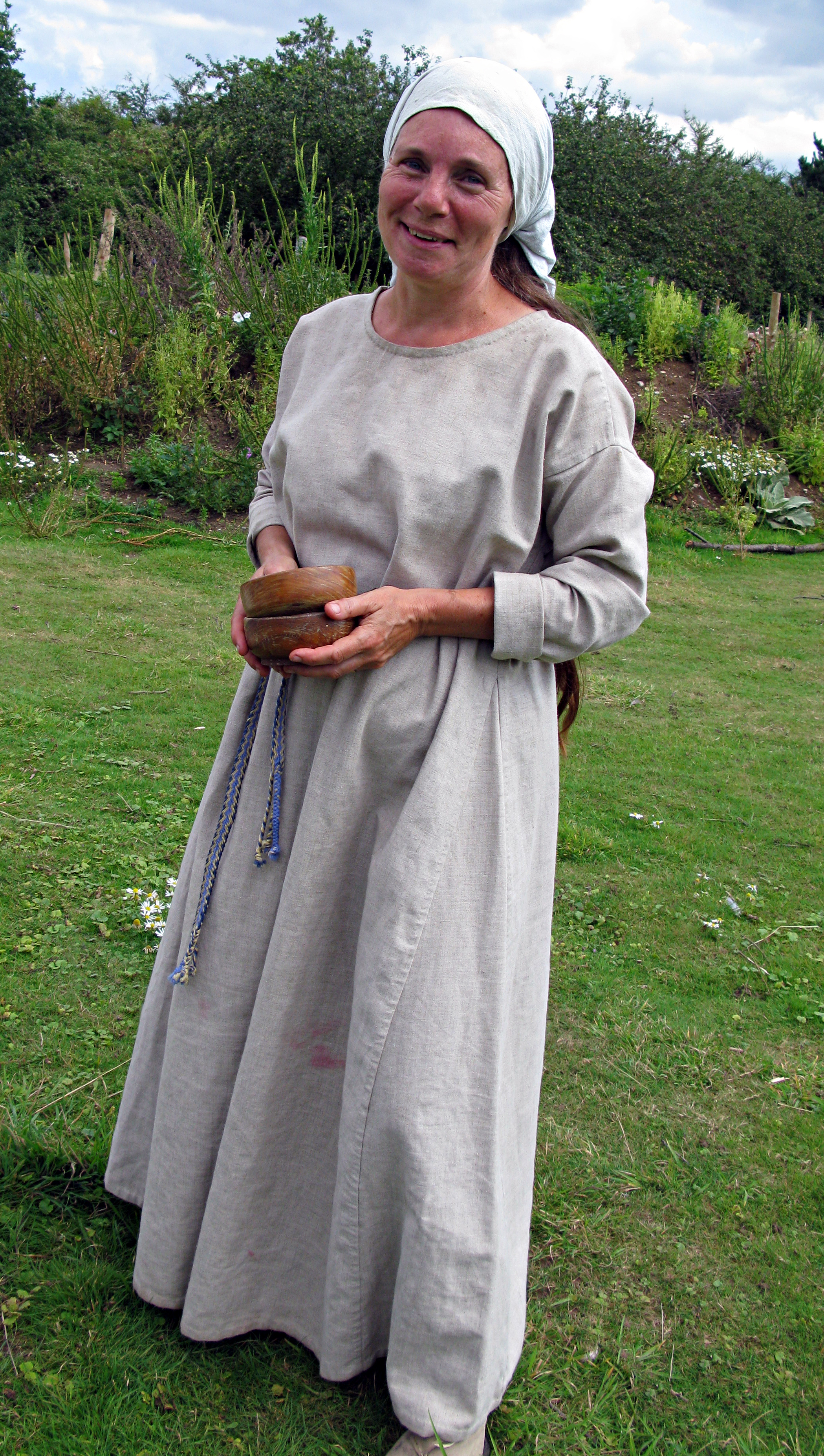
Buy Henbrandt Children’s Viking Girl Anglo Saxon Iron Age Fancy Dress Costume Size Medium Ages 7
Come and check everything at a surprisingly low price, you'd never want to miss it. Shop Like A Billionaire, Come & Check Everything At A Surprisingly Low Price.

AngloSaxon outfits Anglo saxon clothing, Anglo saxon history, Medieval england
7th to 9th centuries Shoulder-brooches and wrist-clasps went out of fashion, and the sleeves of the over-dress now came to just below elbow-length on the arms and calf-length around the legs. The under-dress was cut longer than the over-dress. Veils held on by headbands or fillets became more popular as Christianity spread.

Viking Cloak Heavy Plaid Wool Cloak Double Sided Wool Square Cloak Norse CloakAnglo Saxon
The most common Anglo-Saxon clothes for women were black or brown woolen gowns. All women wore some type of head covering, but many did not wear shoes until the later Anglo-Saxon period. Women's clothing styles also changed as Christianity spread across Britain from the 6th century onwards.

Hey Ma, look what I made! Suvia’s Letters Medieval clothing, Viking dress, Viking garb
The dress of the Anglo-Saxon ladies cannot be described with the same precision as that of the men. The outer vest was a large flowing tunic, which among persons of high rank was made of richly ornamented stuffs; the Anglo-Saxon eyrtel is supposed to have been a shorter tunic, under this, and next to the skin was probably the syrce.

Anglo Saxon/ Viking Women's costume Minerva Craft
Splendid . . . the major overview of Anglo-Saxon clothing and textile from the 5th to 11th centuries. . . . Owen-Crocker has become the authority reconstructors call upon. . . . A wise and scholarly book. TOEBI Newsletter Based on the revised and expanded edition of 2004, this paperback is an encyclopaedic study of English dress from the fifth to the eleventh centuries, drawing evidence from.

AngloSaxon Dress NEN Gallery
Anglo-Saxon dress refers to the clothing and accessories worn by the Anglo-Saxons from the middle of the second century to the eleventh century. Archaeological finds in Anglo-Saxon cemeteries have provided the best source of information on Anglo-Saxon costume.

First attempt at early AngloSaxon peplostype dress. All linen. Anglo saxon clothing, Aged
Anglo-Saxon women's dress, as depicted in manuscript and ivories, consists of several layers of clothing. There is usually cloak, an overdress, an under-dress and then a head-covering. I've avoided using Old English names, because, as far as I can tell, there is a fair bit of scholarly debate about which word was used for which garment item.

Pin on Stuff I've Made
Dress in Anglo-Saxon England.By G ALE R. O WEN-C ROCKER (Woodbridge: Boydell P., 2004; pp. xix + 400. £30).. O RIGINALLY published in 1986, this book became a key text for anyone studying Anglo-Saxon society, and will be welcomed in this revised and enlarged edition. It is almost twice as long as the first edition, for three reasons. First, new data have appeared, principally as a result of.

20+ Anglo Saxon Ladies Hairstyles Hairstyle Catalog
The Virgin Mary in Anglo-Saxon dress, New Minster Charter, 966 Tenth and eleventh centuries Women typically wore a sleeveless overgarment, with or without a hood. If a hood was worn, it was either a scarf wrapped around the head and neck or an unconnected head covering with an opening for the face.

Log in Tumblr Viking clothing, Viking armor, Anglo saxon
By the reign of the Confessor, it seems that regal use of ostentatious clothing had moved from only ritual and ceremonial purposes to 'everyday wear' (Fleming 2007, 138). Fleming suggests that Byzantine silk, with its complex symbolic resonances, was far more frequent in late Anglo-Saxon than historians have previously acknowledged (Ibid.

Anglo Saxon Clothing, Medieval Clothing, Medieval Fashion, Historical Clothing, Medieval Garb
Anglo-Saxon and Medieval Archaeology Archaeology Series Oxford Handbooks Collection: Oxford Handbooks Online Introduction: now and then We live in a world where royalty wear denim and where artificial diamonds gleam as brightly as gemstones.

246 best images about ANGLOSAXON Costume on Pinterest Woman costumes, Clothing and Museums
The Anglo-Saxon people mainly wore clothes made of natural materials such as wool, cotton, linen etc. The men wore tunics with long sleeves made generally of wool. They had trousers held up with a belt containing pouches for knives and other tools. The women usually wore under-dresses of wool or linen and an outer-dress called "peplos".

Pin by ClaireyFaireyHands on ____Costume Cultural Viking costume, Warrior outfit, Anglo saxon
The Art of Dressing: Men's Attire In the Anglo-Saxon era, men's clothing was both functional and symbolic. With elements that signified their rank, occupation, and societal role, the garments they donned daily told a story about who they were.

Anglo Saxon kit Anglo saxon clothing, 10th century clothing, Damsel in this dress
The clothes for women in the Anglo Saxon period comprised mainly of a woollen gown that fell all the way to the ankles. More well-off women would wear a more elaborate dress, often comprising of an inner gown and an outer gown which was looser. Women from wealthier families also wore linen underdress to complement this dress.

AngloSaxon woman Anglo saxon clothing, European dress, Anglo saxon history
The dress of the Anglo-Saxon lady. Head-rail.—Soft green silk with jewelled band. Tunica.—Of blue woollen material, edged with embroidery. Gunna.—Red cloth. (Photographed direct from examples used in the Author's lecture upon " Mediaeval Costumes and Head-dresses.")

Reconstruction of Anglo Saxon mens clothing Anglo Saxon History, British History, Ancient
In general, women wore stockings or leggings for warmth, a plain under-dress, an over-dress attached at the shoulder with pins or brooches, a belt from which spoons, knives and other personal items hang and simple wooden necklaces. Anglo-Saxon Clothing for Men. Men wore leggings, over which cloth stripping was wrapped for extra warmth.